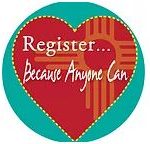 Engaging and meeting the online information needs of potential milk bank donors
Engaging and meeting the online information needs of potential milk bank donors
Dr Mel Hyde, Professor Barbara Masser
Milk bank websites should provide sufficiently detailed, up-to-date information about safety, eligibility, and engagement with the service. Based on a scoping review of milk bank websites, we provide seven recommendations as to the essential information to provide to potential milk bank donors.
Resources coming soon
 save a life - join the bone marrow registry
save a life - join the bone marrow registry
Information sheet providing answers to questions such as what is the Australian Bone Marrow Donor Registry and why is it important? Why is matching and ethnicity important? How can I join the Australian Bone Marrow Donor Registry? What happens if I am someone’s match and how often will I be someone’s match?
 DONOR GRANT MATERIALS: INCREASING ORGAN DONOR REGISTRATION AT NEW MEXICO MOTOR VEHICLE DEPARTMENTS
DONOR GRANT MATERIALS: INCREASING ORGAN DONOR REGISTRATION AT NEW MEXICO MOTOR VEHICLE DEPARTMENTS
This website makes available the materials used in Prof Jason Siegel and colleague's research on increasing donor registration at New Mexico Motor Vehicle Departments.
 DRREAM: Donation, Registration, Research, Education, Awareness
DRREAM: Donation, Registration, Research, Education, Awareness
Read about the impact of Assoc Prof Gail Moloney and team's research on increasing registrations on the Australian Organ Donor Register.
 RECRUITING AND RETAINING VOLUNTEER STOOL DONORS
RECRUITING AND RETAINING VOLUNTEER STOOL DONORS
Dr Mel Hyde, Professor Barbara Masser
Thousands of patients globally with recurrent Clostridioides difficile would benefit from Faecal Microbiota Transplantation (FMT). However, the number of eligible volunteer stool donors do not meet demand, and it is challenging and costly to recruit donors. Based on a rapid review of FMT donor research, and brief reviews of complementary research (e.g., biobanking and clinical trial participation), we provide eight recommendations to inform stool donor recruitment and retention.
 RAPID REVIEW OF THE LITERATURE ON USING HUMOUR TO REDUCE NEGATIVE EMOTIONAL REACTIONS TO UNAPPEALING TOPICS
RAPID REVIEW OF THE LITERATURE ON USING HUMOUR TO REDUCE NEGATIVE EMOTIONAL REACTIONS TO UNAPPEALING TOPICS
Abigail Edwards, Dr Mel Hyde, Professor Barbara Masser
Shame, embarrassment and disgust may discourage people from donating stool or avoid the topic altogether. Within health communication, there is increasing interest in the role of humour to dispel these emotions or increase acceptance of unappealing or threatening information that elicits negative emotions. There is also evidence to suggest that humour can encourage more discussion, and more in-depth and positive discussion, about an advertisement or product. Therefore, humour may be one way to reduce negative emotional reactions and increase discussion about, and ultimately social acceptance of, stool donation. We conducted a rapid review of the literature on humour appeals and their effectiveness in addressing negative emotional responses such as disgust, shame, and embarrassment. We draw parallels between the research identified and stool donation in order to offer insights as to how humour may be used in increasing social acceptance of stool donation and potentially as an avenue for stool donor recruitment.
 RAPID REVIEW OF THE LITERATURE ON SHAME AND EMBARRASSMENT IN STOOL AND SPERM DONATION
RAPID REVIEW OF THE LITERATURE ON SHAME AND EMBARRASSMENT IN STOOL AND SPERM DONATION
Abigail Edwards, Dr Mel Hyde, Professor Barbara Masser
Embarrassment can lead to avoidance of potentially embarrassing situations and contexts. Stool donation is relatively unfamiliar to most people, and the substance itself or the act of donating may induce embarrassment or shame in potential or actual donors. As such, potential or actual donors may be deterred from donating stool because they feel shame or embarrassment. However the perspectives of potential and actual stool donors has been largely overlooked. We conducted a rapid review of the stool donation literature, along with literature on sperm donation - a context in which donors may also experience embarrassment or shame, in order to offer insights for stool banks to help them manage these responses and increase donor comfort.
 LIFEBLOOD REPORT
LIFEBLOOD REPORT
Dr Mel Hyde, Professor Barbara Masser
 FECCA's Cultural Competence in australia: a guide
FECCA's Cultural Competence in australia: a guide
Federation of Ethnic Communities' Councils of Australia (FECCA)
FECCA's Cultural Competence in Australia guide is an excellent go to resource if you'd like to know more about cultural competency in the workplace, such as when working with staff and donors.